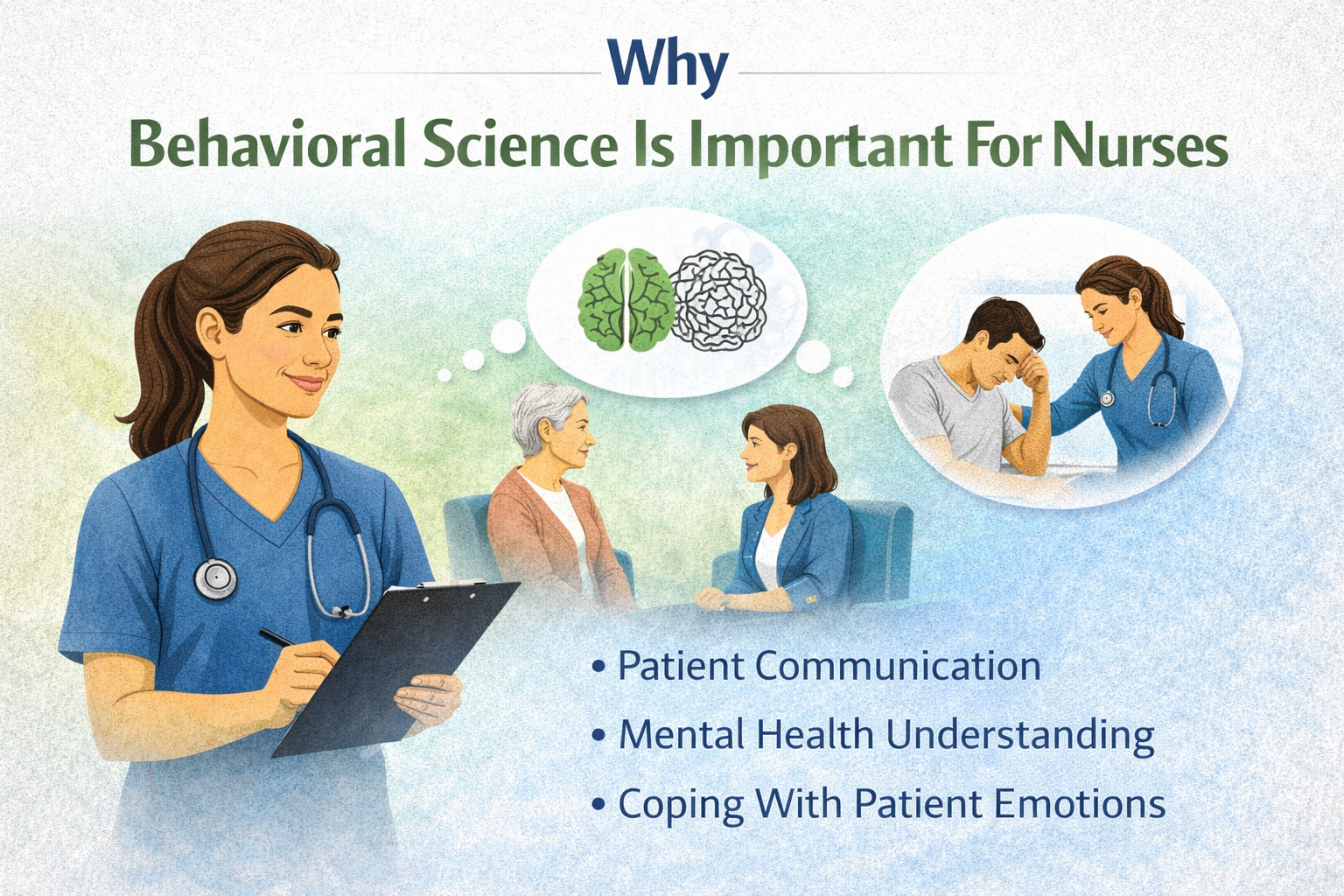Introduction Psychosocial rehabilitation remains one of the most stigmatised yet vital areas within the field of psychology. It focuses on helping individuals who have experienced significant psychological trauma reintegrate into society and rebuild meaningful lives. Specialised rehabilitation courses are thoughtfully designed to train students in supporting vulnerable individuals and communities, equipping them with the skills to manage and treat those struggling to navigate the complexities of everyday life. What Does Psychosocial Rehabilitation Mean? Explain With Features. Psychosocial Rehabilitation is a specialised branch of Psychology that focuses on people with mental health concerns or who have been diagnosed with specific mental health conditions. This division of psychology provides service and support to patients by promoting personal recovery and growth followed by community and societal integration. Psychosocial Rehabilitation consists of evidence-backed approaches that are to be inculcated in key aspects of life, such as education, employment, lifestyle, family dynamics, peer support, and basic living and wellness. Here are some of the distinct features and approaches in Psychosocial Rehabilitation that every aspiring psychologist must know about: In Psychosocial rehabilitation, after the assessment, the focus is diverted towards the potential strengths of a person instead of weaknesses. Based on the individual strengths, personalised goals are set up to and by capitalising on this practice, an effective recovery plan is chalked out. This includes rediscovering skills and an efficient utilisation of community resources for a seamless transition to everyday life. Psychosocial Rehabilitation emphasises setting up individual goals according to the client's interests. Having a successful …
Categories
Introduction The study of the human mind and behaviour has evolved into a structured scientific discipline known as psychology. While it plays a central role in discussions surrounding mental health, psychology is firmly grounded in systematic research and established theory. This foundation has led to an ongoing academic discussion about how the field should be classified. Drawing from scientific principles and ethical frameworks across multiple disciplines, psychology bridges different areas of study. As a result, the question of whether psychology is a social science or a behavioural science highlights the importance of integrating both perspectives to better understand and explain an individual’s psychological state. What Does the Study of Psychology Include? As outlined above, psychology brings together insights from science and philosophy to explore how the human mind works, how behaviour is shaped, and what influences the brain. The academic programme includes subjects like health psychology, cognitive psychology, developmental psychology, behavioural psychology, social psychology, forensic psychology, industrial psychology, etc. Academic Qualifications You Need to Become a Psychologist Psychology is officially taught under two bachelor’s programmes, Bachelor’s of Science and Bachelor’s of Arts. Both the programmes offer the basic foundation in psychology. The undergraduate programme takes about 3-4 years, and a degree is awarded to every candidate who successfully completes it. After the completion of the B.A. or B.Sc. in Psychology, students can look into post-graduation options to advance their academic knowledge and skills. The master’s degree is also the eligibility criterion for PhD programmes in advanced psychology specialisations. Is Psychology …
Table of Contents Every patient interaction is more than a medical procedure; it is a meeting between human behaviors, beliefs, and emotions. Behavioral science, the systematic study of how people think, feel, and act, gives nurses the language and tools to understand those interactions. For students entering the nursing profession, this field offers practical wisdom: how to guide patients toward healthier habits, communicate effectively, manage stress, and sustain compassion. Nursing care improves when behavioral insights meet clinical knowledge, creating care that heals both body and mind. Therefore, the role of behavioral science in training professional nurses becomes important. The Human Side of Behavioural Science Behavioral science helps explain why people behave the way they do, especially when health is involved. Models such as the Health Belief Model (HBM) reveal that a patient’s decisions, whether to follow treatment, attend appointments, or change diet, depend on their perceived risk, potential benefits, and self-beliefs (University of Pennsylvania, 2010). When nurses use such frameworks, they stop viewing “non-compliance” as stubbornness and begin to understand it as human reasoning shaped by fear, experience, or social context. Behavioral science invites empathy, evidence, and structure into this understanding. It helps nurses move from simply telling patients what to do toward assisting them to believe they can do it. The World Health Organization (WHO) itself states that “human behavior affects every aspect of health outcomes,” urging health systems to integrate behavioral and social sciences in practice and policy (WHO, 2023). For nursing students, this means behavioral science is …
Introduction Psychology is a scientific discipline that probes the mind and behaviour of individuals and sometimes communities to better explain our actions, collectively as humans. Before discussing the question ‘What is Psychology?’, it is essential to consider why it is so important, as the research and awareness around psychology increase with the hope of building an empathetic future. The study of psychology may have begun more than a century ago, but its sensible application is fairly recent. Naturally, breaking the stigma both in society and among mental health patients has been overwhelming. Countering it with logic and science, and an influx of understanding through studying psychology has significantly altered public opinion on the matter. What is Psychology ? A Complete Guide to the Science of Mind & Behaviour The definition of psychology refers to scientific methods for diagnosing mental and behavioural anomalies in humans and prescribing medicines where needed. The formal discipline is broadly divided into two parts: practice and research. The research wing of psychology has been active since its inception over a century ago. However, the ensuing stigma and negative portrayal of mental institutions prevented a revolutionary increase in the practice. The intricate relation between the human brain, mind, and behaviour was realised only by observing brain activity and understanding its impact on the body and behaviour. In short, psychological study and application are often combined as an interdisciplinary programme to offer a better understanding for practitioners and researchers alike. Psychological Perspectives & Their Purpose During the 20th …
Behavioural science takes influence and insight from different academic areas to understand human behaviour and how we react the way we do. One of the benefits of studying Behavioural Science is becoming good at interpersonal communication, judging by the person or sensing the room. To know all about Behavioural Science, it is important to start with the definition and expand on its characteristics, theory, principles, and implementation. All About Behavioural Science As a field deeply rooted in science, Behavioural Science is believed to be experimental in nature. It combines a wide range of subjects from sociology, psychology, biology, economics, geography, law, politics, cultural anthropology, etc. There are different types of courses that either offer a certification or a degree, which are essential for jobs. The following are some factors that affect Human Behaviour in general. Psychological influences are often the strongest forces behind human behaviour. Having a purpose or goal, for instance, gives you the motivation and determination to work toward it. Behavioural influences come from a person’s own values, ethics, and beliefs. These shape how someone responds in different situations and can even help them manage or control their impulses. Human behaviour is also shaped by biological factors such as age, sex, genetics, and upbringing. These elements often explain personality traits shared within a demographic or among family members. Lastly, societal influences play a major role. We often adjust our behaviour depending on the social group or setting we are in, choosing what feels most appropriate for each situation. …
Psychology is an interdisciplinary field that draws from various subjects to understand the complex factors influencing brain activity and behaviour in individuals and groups. The integration of diverse theories, contexts, and analytical frameworks is essential for accurate psychological evaluation. However, applying these concepts to real-life cases requires formal education, most notably, a Master's degree in Applied Psychology (M.A.). To enter the professional realm, students must not only obtain the necessary qualifications and licensure but also gain practical experience through ongoing contributions and engagements in the field. Understanding Applied Psychology No matter which area of psychology you specialise in, the proper application and use of psychological sciences and theories to solve or manage real-world problems is the primary objective of Applied Psychology. Applied Psychology produces professionals who are ready to work in various sectors, directly contributing to system-wide changes. The field of psychology has typically two sides: one is research, and the other is applied psychology. Instead of research-based work, applied psychology emphasises on the application of that research on the ground. Prominent Areas of Applied Psychology While an MA in Applied Psychology can focus on various specialisations, some areas of study tend to receive greater recognition and relevance in both academic and professional settings. Applied Psychology encompasses numerous subfields, and its scope continues to grow as new challenges and opportunities emerge. Here are some of the most prominent areas within applied psychology that aspiring students may want to explore. Health Psychology: In health psychology, biology, behaviour, psychology, and several social …
Table of Contents Psychology has been a blessing in the field of medicine. While the advancements in the field of physical health sciences have been quick and astonishing, mental health has long been ignored. It has been established well enough that the effects of mental health deterioration can impact physical health and even interfere with medical treatment and recovery. In the case of children, a similar pattern has been observed, resulting in the subject of Child Psychology being taught as a specialised discipline in universities across the world.Understanding Child Psychology & Its Key AspectsChild psychology is a specialised branch of psychology that focuses on children and young adults, with the purpose of aiding their mental growth and development. Physical growth, along with mental, emotional and social development of children, is the prime emphasis of child psychology and development.The study uses psychological theories and methodologies to understand the mental development of children in comparison to adults and their peers, under a variety of circumstances and factors. It is often grouped with developmental psychology to provide a wider spectrum.Nonetheless, the value and significance of child psychology are reflected through the key aspects it focuses on. There are 4 key aspects that child psychologists usually look into:Cognitive Development: It is one of the most important parts of child development that includes cognitive abilities such as reasoning, symbolism, and abstractness, which are developed and solidified during the early stages of life. Emotional Development: A newborn comes into the world fully dependent on their parent. …
Psychology encompasses a vast range of subjects, and the study is used to understand the human brain, its functionalities and the behaviour that is subsequently displayed. The MSc in Applied Psychology is a course dedicated to nurturing professionals with the knowledge of the application of theory into practice. In the last leg of the 1800s, Germany established the world’s first psychology institute and research centre in 1879, and the USA followed suit in 1883. The entirety of the 20th century has been spent on perfecting science, and the birth of revolutionary techniques like psychotherapy, radical behaviourism, and cognitive-behaviour therapy. What Is Meant By Applied Psychology? The term ‘applied psychology’ literally suggests the application of psychological methods and scientific findings to solve real-life behavioural issues in humans and animals. The study of psychology is important for young scholars to achieve theoretical and practical knowledge, and applying the science of psychology in real-world situations is the predominant aim for applied psychology. Applied psychology includes a range of activities such as lab experimentation, fieldwork and study, therapies and direct services. While the first psychological clinic was established in 1896 at the University of Pennsylvania, the division for applied psychology was first formed in 1915 at the Carnegie Institute of Technology. Everything You Need To Know About The Applied Psychology Programme The field of applied psychology has witnessed remarkable growth over the past century, expanding its focus to include vocational testing, stress management, morale and attitude assessment, rehabilitation, propaganda, psychological warfare, and counselling. At …
Table of Contents Industrial-Organisational Psychology is one of many branches that highlight how the understanding of human psychology—though still evolving—offers significant insights into human behaviour, explaining how and why people think, act, and react the way they do. This growing body of knowledge has allowed psychology to intersect with a variety of other fields beyond healthcare and medical science. Notable examples include industrial psychology, consumer psychology, corporate psychology, and educational psychology, among others, highlighting the discipline's wide-ranging relevance and impact. Explain Industrial-Organizational Psychology This discipline brings together two key areas of psychology — Industrial Psychology and Organisational Psychology. It focuses on applying psychological theories and principles within workplace settings to understand the behaviour and grievances of employees better, enhancing the overall work environment. The ultimate goal is to improve productivity, job satisfaction, and organisational effectiveness. The field of Industrial-Organisational Psychology has witnessed a recorded growth of over 26% in 2018, and it is still in demand. As the awareness of mental health in office spaces increases, more and more corporations and organisations are bound to create room for psychological evaluation and the well-being of all employees and staff. Let’s begin by exploring Industrial Psychology and Organisational Psychology separately to better understand how they function individually and how they complement each other. Theories of Industrial Psychology Industrial psychology focuses on creating a work environment where employees can thrive holistically, while also enhancing their productivity and contribution to the organisation. To achieve this goal, Industrial Psychology uses 6 Theories, explained below. A …
Table of Contents Psychology is a dynamic field with diverse branches and applications, and Community Psychology is one of the prominent ones in today’s context. With growing awareness of mental health issues affecting individuals and communities, there is a rising demand not only for trained psychologists but also for deeper research and evaluation in this field. What is the Meaning & Purpose of Community Psychology? As the name suggests, community psychology utilises a broader lens to oversee a group or a community by integrating cultural, social, environmental, economic, political, and global factors to analyse and identify solutions to bring positive changes on a systematic level. The purpose of Community psychology is to understand the relationship between individuals and society and how it impacts their contribution to the community and vice versa. The relationship between community and individuals and their impact on one another is one of the most defining factors for community psychology. As a multidisciplinary programme, it instinctively includes other subjects or stimuli to evaluate the influence on individuals on a smaller scale and communities on a larger scale. A Brief History of Community Psychology Since the inception of Psychology as a formal discipline, it has been primarily focused on individual behaviour and action. During the 1960s, a larger call for addressing social issues through psychology emerged, resulting in the inception of Community Psychology. This shift emerged as many professional psychologists at the time grew dissatisfied with Clinical Psychology’s limited focus on social issues. The turning point came with …
- 1
- 2











